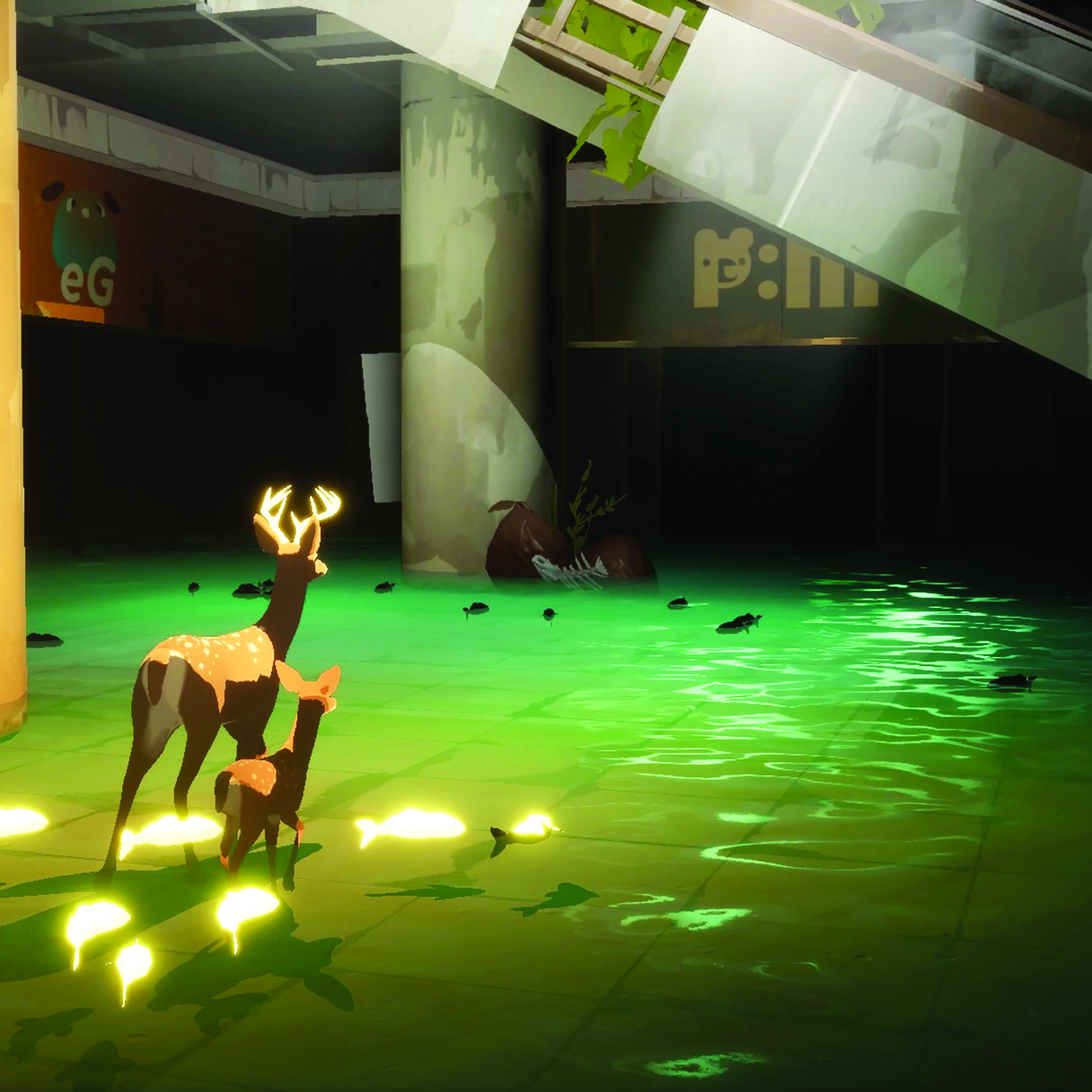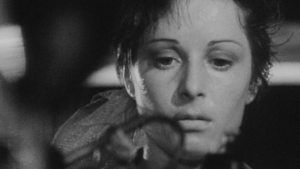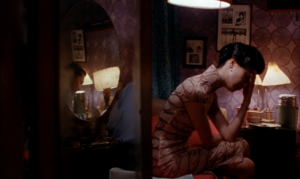In August, tucked away in a small development studio–cum–boutique storefront in the northern Melbourne suburb of Preston, the future of Victorian game development was on show. Paper House, an outfit primarily headed by local developer Terry Burdak, was performing double duty as host and exhibitor, opening its doors for the event while also displaying the studio’s own upcoming title, Wood & Weather. The game was being showcased alongside some of the city’s most anticipated upcoming releases, all of which have been recipients of grants from Victorian Government development agency VicScreen (until recently known as Film Victoria), which was responsible for organising the event.
Alongside Paper House were five other developers: Massive Monster, promoting the imminent release of their indie megahit (not that we knew that at the time) Cult of the Lamb; Ghost Pattern, displaying their nostalgic, wistful adventure game Wayward Strand; Lumi Interactive, with their self-care-themed, brain-soothing plant-cultivating game Kinder World; Guck, presenting their trailblazing Aboriginal-led mobile game Future Folklore; and One Pixel Dog, showing the Studio Ghibli–inspired Way to the Woods.
Before any presentations could be made or any gameplay was revealed, however, each developer was given the chance to speak about the development behind their game. The overriding impression I gathered from what they had to say was that engaged, meaningful support from government institutions and creative bodies is key to cultivating an industry capable of receiving the global recognition that Melbourne’s game development scene deserves. Without financial grants and other support, it’s entirely possible that indie game producers like Massive Monster wouldn’t have found themselves partnering with high-profile publisher Devolver Digital, which provided them with the resources to realise Cult of the Lamb at a much more sophisticated level.
Events like these are also an opportunity to talk frankly to developers about their experiences working on such long-term projects, especially when getting to the pointy end of development. I spent some time speaking with Ghost Pattern about their decision to delay Wayward Strand’s release, one they came to partly to allow for the addition of a dedicated producer to the team in the final year of development. By working with someone who was focused solely on the task of shepherding the game across the finish line, Ghost Pattern’s core development team were able to alter their road map to avoid problems like burnout and unnecessary stress, issues that become all the more prevalent as a game inches closer to release.
Support from bodies like VicScreen can also imbue the work of these developers with a feeling of sustainability. There’s no shortage of talent and passion in the Melbourne games industry, but even for people as passionate as 23-year-old Ant Tan, who has been developing Way to the Woods since he was sixteen, game development can be a stressful and time-consuming ordeal. Way to the Woods displays beautifully in cinematic trailers and hands-on gameplay segments, earning it a loyal following of fans eagerly anticipating its release, but Tan – the solo developer behind One Pixel Dog – has had the game on and off the back burner for years while he lived his life and came to grips with what a career in game development meant for him. Tan’s dedication to the game has seen it recognised by giants of the industry like Microsoft – it’s a planned day-one release on Xbox Game Pass – and VicScreen has also stepped in with funding to ensure Tan is able to support himself while he finalises the game. Way to the Woods has long drawn public attention and excitement, but game development is a hard gig, and it’s crucial that VicScreen recognises that supporting a talent like Tan is a smart use of resources; personally, I can’t wait for his game’s release.
Overall, events like the Paper House showcase demonstrate the relationship that needs to be fostered, grown and maintained between the diverse group of developers and other game professionals in our state and government organisations that have the opportunity to support them. Simply put, it means a lot when VicScreen CEO Caroline Pitcher gets up at an event like this and says, ‘We love games.’





